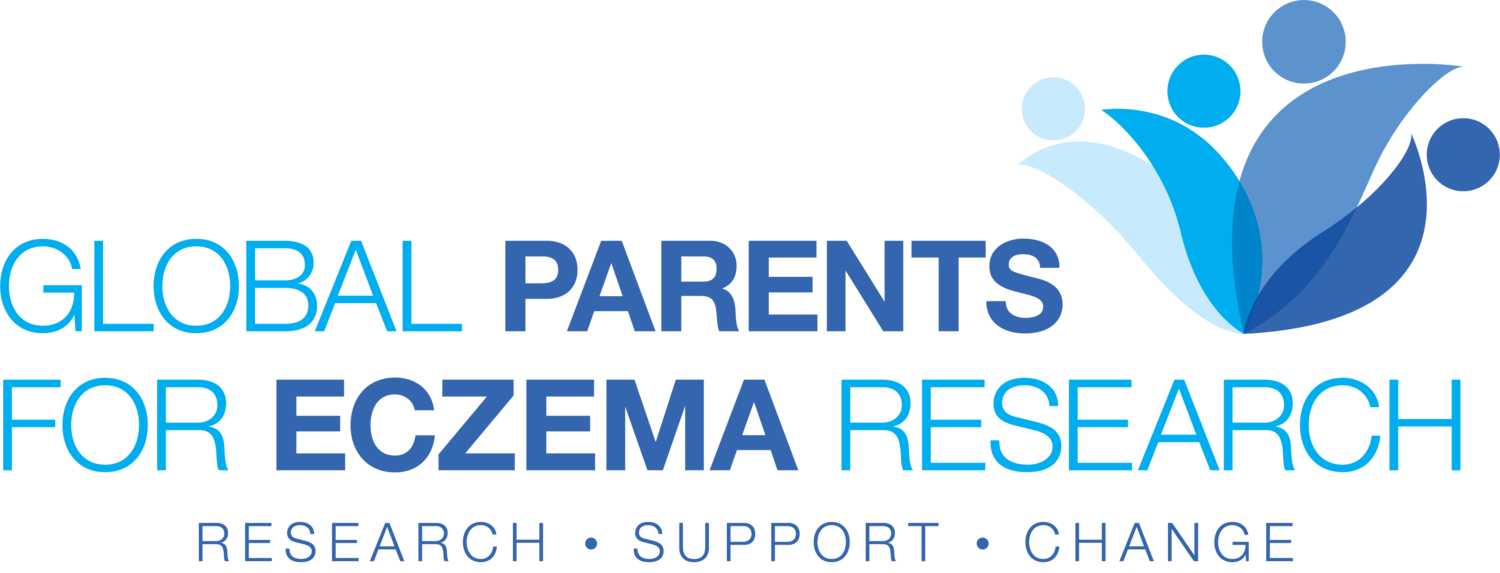Research Spotlight: The Scoop on Moisturizers
Moisturizers are the mainstay of most parents’ fight against eczema, but they come with a lot of unanswered questions. Here’s a summary of the research discussed in our recent podcast that may help.
What kind of moisturizers are most effective?
Dr. Sayantani from the Center for Allergy and Asthma Research at Stanford looked at which kinds of moisturizers prevented water loss that leads to dry skin associated with eczema. In this small pilot study of 45 children, parents were given two unidentified containers of emollients and told to apply one to the left arm and one to the right arm of their child. One of the emollients was a commonly used paraffin-based moisturizer, Aveeno. The other was a moisturizer containing a blend of three lipids that mimic those found in healthy skin, Epiceram. After five weeks, the children’s skin moisture level was tested. The oil-based moisturizer was found to be significantly more effective in preventing water loss than the paraffin-based product.
What ingredients promote healthy skin microbiome?
Dr. Ian Myles from the Institute of Allergy and Infectious Disease at NIH looked at the same issue from a different research angle: how do ingredients in products affect the skin microbiome (the balance of healthy and unhealthy bacteria on our skin). Research on ingredients is difficult because patients must stop using all products for several days to study them. To allow him to look at more ingredients, Dr. Myles tested their effects on bacterial lab cultures and on the skin of mice. His research methods may finally provide an answer to whether a specific ingredient can encourage or retard growth of bacteria like Staph aureus that plague children with eczema. More information can help parents identify ingredients to look for or avoid and help manufacturers formulate products that work.
When and how often to moisturize?
As is often the case with a complex condition like eczema, the answer is complicated.
Now that we know more about how kids with eczema become sensitized through their skin, researchers are looking at moisturizing therapy for infants. A 2021 study of 1303 infants from the British EAT study found that the development of allergies was related to how many times a week moisturizer was used in babies under 3 months. It found an increase in food and airborne allergies by age three for every additional use of moisturizers per week in young infants.
In terms of how and when to moisturize older children with moderate to severe eczema, Dr. Sayantani recommended moisturizing as quickly as possible after a short shower using a thick lipid-based cream.
Want to read more blogs like this one? Subscribe to our newsletter to stay in the loop!
Are you a parent looking to connect with others on the eczema journey? Sign up for our free caregiver support program today.

